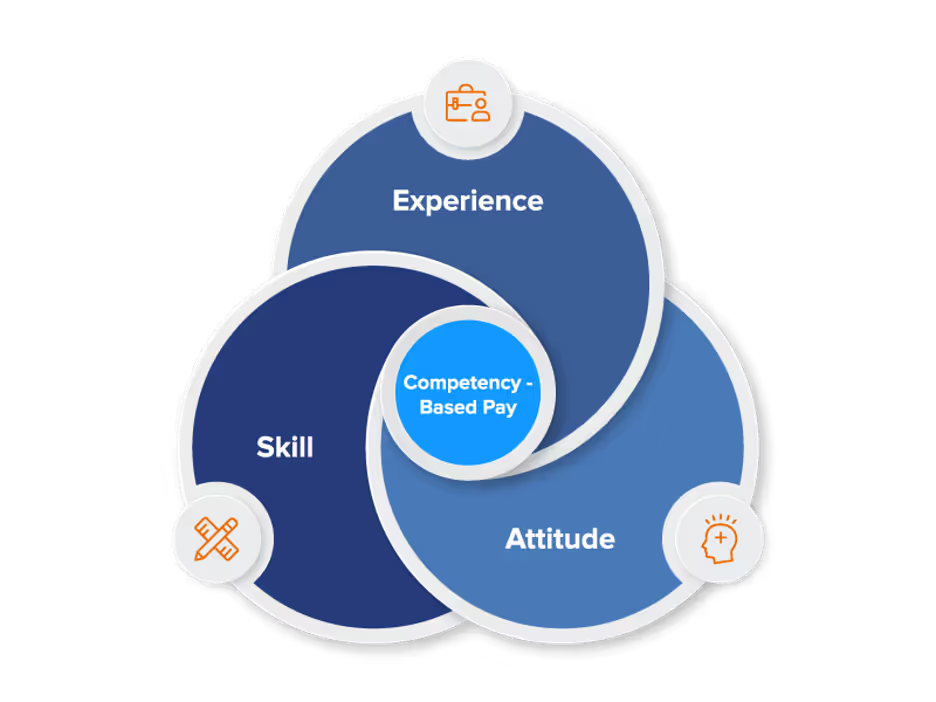Benefits of Competency-Based Pay

Competency-based pay is a system where employees are paid based on their ability to do the job rather than their time spent on it. It's a system that replaces traditional merit-based systems, where employees are paid according to how long they work and how quickly they achieve tasks.
In a competency-based system, you're paid based on your performance. You can expect to be compensated well if you're in a position with high productivity and work output expectations. You might get paid less if you're less productive or need to meet expectations. This can be good for workers who want security but also want to feel like they're being rewarded for their hard work and smart decisions.

It's also good for companies because it removes some of the biases in traditional systems where people who work longer hours tend to earn more money—and those who do less work may not be compensated.
Competency-based pay is a method of compensation that rewards employees based on their performance and contributions to the company. It can be good for employers because it aligns employees' interests with the company's goals, and it can be bad for employees because it may not motivate them to work as hard or quickly as they could if they were paid based on hours worked.

Benefits of Competency-Based Pay
The primary benefit of competency-based pay is that it allows companies to give greater attention to their most important employees. This can be especially helpful when an employee struggles with a new position or role after years of being in the same one. Competency-based pay also helps companies assess how well they pay their employees by showing them how much they are worth. Here are some other benefits that come from competency-based pay.
● Employees feel more motivated to perform well for the company because their compensation is tied directly to their performance.
● The company has a better understanding of what its most valuable employees do, allowing it to decide where to focus its time and resources.
● The company can hire better people based on their skills rather than just their experience, which makes them more likely to stay with the company longer than if they were hired off a resume without any reference points or expectations.
● Easier decision - making for employers - Employers can take into account the skills that someone has rather than just their years of experience or job title.
● Less discrimination - Employers don't need to rely on stereotypes about what certain jobs require; instead, they can evaluate performance based on what a person does well.
Conclusion
Competency-based pay is good. It can save time by identifying employees ready to advance without extensive training. In addition, it will allow new employees to advance faster in their careers and reward loyal employees that stick with the same company.
However, some employers will not want to use this method because it could be too difficult to determine which employees have the most potential.
Find out how Compport can help you manage all your Employee Benefits process, book a demo today!
%2520(6)%2520(2).avif)


%20(34).avif)
%20(50).png)
%20(49).png)
